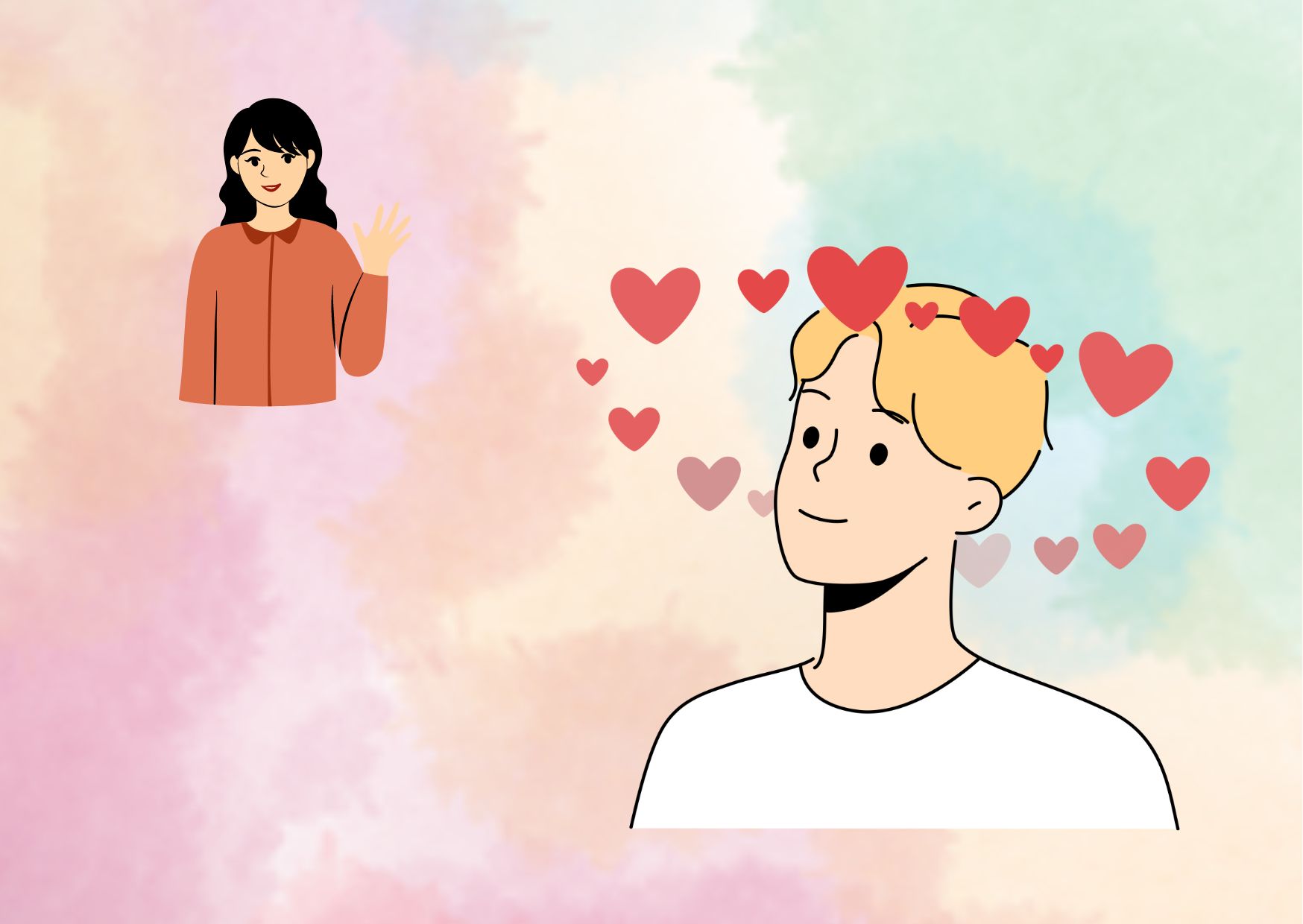Right Person, Wrong Time: How to Navigate This Heartbreaking Dilemma
Meeting the right person at the wrong time can be an incredibly painful and confusing experience. Despite finding someone who seems like the perfect partner, a myriad of circumstances conspire to keep you apart, leaving you feeling frustrated, heartbroken, and uncertain about how to move forward.
This dilemma of being with the right person at the wrong time often arises due to external factors or internal struggles that hinder the relationship from progressing. Whether it’s long-distance, conflicting life goals, or personal issues that need resolving, the universe seems determined to prevent you from being together with your ideal partner. Navigating this emotional turmoil and making sense of the situation is undoubtedly challenging, yet essential for personal growth and healing.
Why Timing Matters in Relationships
Timing plays a pivotal role in the success and longevity of relationships. It is a crucial factor that determines whether two individuals are truly ready to embark on a romantic journey together, despite their compatibility and connection. Here’s why timing matters in relationships:
The Role of External Circumstances
External circumstances can significantly impact the timing of a relationship. These circumstances may include:
- Life Goals and Pursuits: The dreams and aspirations that individuals are currently pursuing can clash with the demands of a committed relationship. If one partner’s goals are incompatible with the other’s or if their priorities are misaligned, it can create a rift, making the timing unsuitable for a successful relationship.
- Past Experiences and Emotional Baggage: Unresolved emotional wounds or unprocessed hurt from previous relationships can hinder individuals from being fully present and emotionally available in a new relationship. If one or both partners haven’t healed from past traumas, the timing may be off, and the relationship may struggle to progress.
- Life Stage and Future Vision: Individuals at different stages of life may have varying visions for their future, such as having children, settling in a particular location, or embracing a nomadic lifestyle. If these visions are vastly different, compromising can become challenging, and the timing may not be ideal for a lasting relationship.
- Age and Experience: While age itself is not a definitive factor, the experiences and maturity levels associated with different ages can contribute to misaligned timing. Individuals with significantly diverse life experiences or levels of emotional maturity may find it challenging to navigate a relationship successfully.
Personal Readiness and Growth
Apart from external circumstances, personal readiness and growth also play a crucial role in determining the timing of a relationship. These factors include:
- Self-Awareness and Emotional Stability: Individuals who lack self-awareness or emotional stability may struggle to communicate effectively, manage conflicts, and maintain healthy boundaries in a relationship. Without these essential qualities, the timing may not be right for a fulfilling and lasting partnership.
- Willingness to Adapt and Evolve: Relationships require both partners to be willing to adapt and grow together. If one partner is resistant to change or personal growth, while the other is eager to evolve, the timing may be off, leading to potential conflicts and stagnation in the relationship.
- Need for Personal Exploration: Some individuals may feel the need to gather more life experiences or explore their independence before committing to a serious relationship. If this need is not fulfilled, the timing for a committed partnership may be premature, leading to dissatisfaction or a desire for novelty.
- Overall Readiness: Individuals’ overall readiness for a relationship can fluctuate over time, influenced by various factors such as healing from past relationships, focusing on personal goals, or simply not feeling emotionally prepared. When one or both partners lack this readiness, the timing may not be conducive to a healthy and fulfilling relationship.
Research has consistently highlighted the importance of timing in relationships, demonstrating its influence on commitment, relationship maintenance, and endurance. A higher degree of readiness is associated with increased commitment, better communication, and a lower desire to disengage from the relationship.
Recognizing the Right Person at the Wrong Time
Recognizing the right person at the wrong time can be a complex and emotionally charged experience. Despite the undeniable connection and potential for a fulfilling relationship, various factors may conspire to make the timing unsuitable. Here are some key indicators that you may have encountered the right person at the wrong time:
Emotional Connection
One of the most significant signs is a strong emotional connection and compatibility with the person. You may feel a deep sense of understanding, empathy, and emotional intimacy that transcends the boundaries of a typical relationship. This emotional bond can be palpable, making it challenging to let go, even when circumstances are not favorable.
Shared Values and Goals
Another indicator is the alignment of values, goals, and visions for the future. You may share similar life philosophies, aspirations, and a mutual understanding of what constitutes a fulfilling and meaningful life. This shared outlook on life can create a sense of unity and compatibility that is rare to find.
Mutual Respect and Admiration
A hallmark of meeting the right person is the presence of mutual respect and admiration. You may find yourself in awe of the other person’s qualities, achievements, and character, while they reciprocate the same level of respect and appreciation for you. This mutual admiration can foster a deep sense of trust and emotional security, even in the face of unfavorable circumstances.
However, despite these positive indicators, the timing may be off due to various external factors. These could include conflicting life stages, geographical distance, personal commitments, or unresolved emotional baggage from past experiences. Recognizing the right person at the wrong time can be a bittersweet experience, as it involves acknowledging the potential for a profound connection while simultaneously grappling with the realities that hinder its full realization.
It’s important to note that the concept of “right person, wrong time” is subjective and can vary from individual to individual. What one person perceives as the right person may not align with another’s perspective. Ultimately, the decision to pursue or let go of a connection lies in weighing the potential for a fulfilling relationship against the obstacles that stand in the way.
Typical Circumstances Hindering Relationships
Encountering the right person at the wrong time can be a heartbreaking experience, as various circumstances may conspire to hinder the relationship from progressing. These circumstances can be broadly categorized into three main areas: long-distance challenges, career commitments, and personal growth.
Long-Distance Challenges
Long-distance relationships can be incredibly challenging, as the physical separation between partners can create a sense of uncertainty and disconnect. The lack of physical proximity can make it difficult to maintain emotional intimacy and can lead to misunderstandings and miscommunications. Additionally, long-distance relationships often face challenges such as:
- Communication barriers: Effective communication is crucial in any relationship, but it can be particularly challenging when partners are separated by distance. Misunderstandings can arise due to a lack of nonverbal cues, technical difficulties, or cultural differences.
- Trust and insecurity: The absence of physical proximity can breed feelings of insecurity and mistrust, as partners may worry about infidelity or growing apart.
- Conflicting schedules: Different time zones, work schedules, or other commitments can make it difficult to find quality time to connect and nurture the relationship.
- Lack of physical intimacy: Physical intimacy is an essential component of romantic relationships, and the inability to maintain this aspect can strain the connection between partners.
- Uncertainty about the future: Long-distance relationships often face uncertainty about when or if they will be able to close the physical gap, which can create feelings of hopelessness or resentment.
Career Commitments
Career demands and commitments can also pose significant challenges to relationships. When one or both partners have demanding careers that require extensive travel, long hours, or relocation, it can strain the relationship in various ways:
- Time constraints: Demanding careers can limit the time available for nurturing the relationship, leading to feelings of neglect or resentment.
- Conflicting priorities: Career ambitions and goals may clash with the needs and expectations of the relationship, creating a sense of imbalance or incompatibility.
- Financial stress: Certain careers may come with financial instability or low pay, which can add additional stress and strain on the relationship.
- Lack of work-life balance: Excessive workloads or the inability to separate work from personal life can lead to burnout, emotional exhaustion, and a lack of energy for maintaining a healthy relationship.
Personal Growth
Personal growth and individual development can also impact the timing and dynamics of a relationship. While personal growth is essential for a fulfilling life, it can sometimes create challenges within a relationship:
- Misaligned goals: As individuals grow and evolve, their personal goals and aspirations may diverge, leading to a mismatch in priorities or life visions.
- Emotional maturity: Differences in emotional maturity or self-awareness can hinder effective communication, conflict resolution, and the ability to maintain healthy boundaries within the relationship.
- Resistance to change: If one partner is resistant to personal growth or unwilling to adapt and evolve, it can create stagnation and frustration within the relationship.
- Need for exploration: Some individuals may feel the need to explore their independence or gather more life experiences before committing to a serious relationship, leading to a misalignment in timing.
It’s important to note that these circumstances are not necessarily insurmountable obstacles, but rather challenges that require open communication, compromise, and a shared commitment to overcoming them. By understanding and addressing these typical hindrances, couples can navigate the complexities of being with the right person at the wrong time and potentially find a path towards a fulfilling and lasting relationship.
Suggestion for read: Top 10 Signs a Coworker Likes You
Emotional and Psychological Effects
Encountering the right person at the wrong time can have a profound emotional and psychological impact, leaving individuals grappling with a range of challenging experiences.

